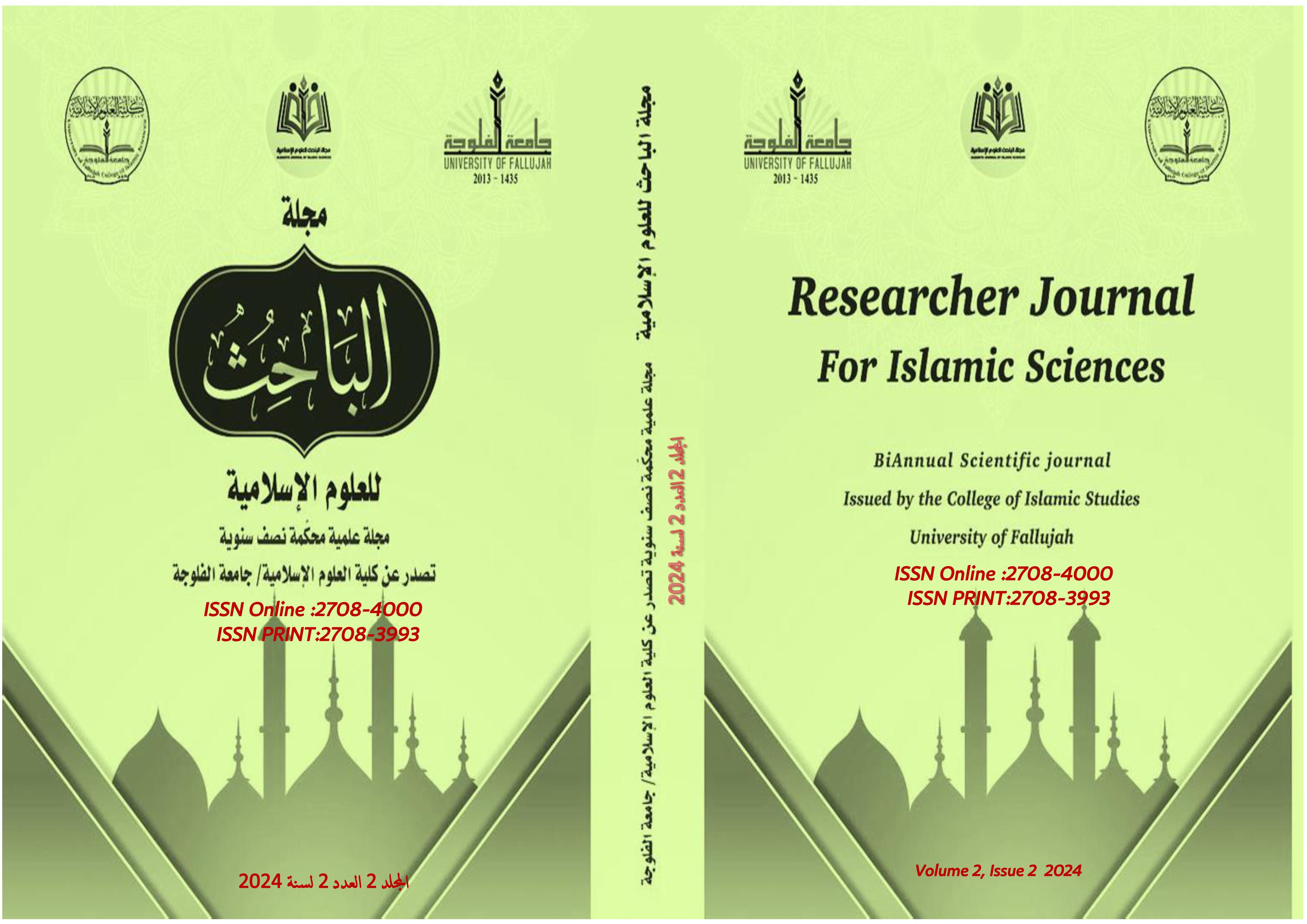The term “bitta” in the book Al-Maqasid Al-Shafi’i by Al-Shatibi (d.790 AH)Some issues in the chapter (subject and predicate) as an example
Abstract
In this research, the researcher aims to first clarify that this paper is part of a larger work, which was my master’s thesis titled “The Grammatical Bitta in Al-Maqasid al-Shafiya - In the Explanation of Al-Khulasah al-Kafiya by Al-Shatibi (d. 790 AH) from the Parts of Speech to the Chapters on Naskh.” Therefore, the content here is excerpted due to the nature of the overall research. The following are the key points derived from this work, as outlined:
The term bitta means “cut off” or “absolutely not.” When we say “this will not happen bitta” it means “it will definitely never happen.” This is a style used in the classical Arabic of the early periods. The term bitta is used by grammarians within the scope of grammatical rulings on usage phenomena, and it has been in use since the early grammatical periods. Al-Shatibi’s use of the term bitta was not a novelty by him, as many grammarians preceded him in its usage, and he followed this approach after scrutiny, although he has specific rulings on bitta outlined in the research. The subject and predicate work together in the usage of eloquent Arabic speech; one cannot be used without the other except in cases of interpretation, omission, or estimation. The grammatical ruling cannot be accepted unless it is based on the intended meaning of the sentence, as derived from the context of the speech. Therefore, what may appear to be a single word, when placed in context, becomes a sentence.
Keywords:
Batta, Maqasid, Al-Shatibi, Al-Mubtada’ and Al-KhabarAdditional Files
Published
How to Cite
Issue
Section
License
Copyright (c) 2025 Researcher Journal of Islamic Sciences

This work is licensed under a Creative Commons Attribution-NonCommercial-NoDerivatives 4.0 International License.
تجربة






